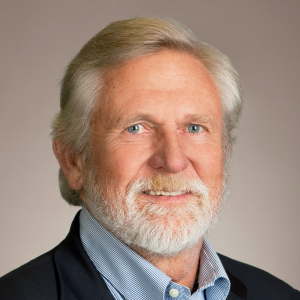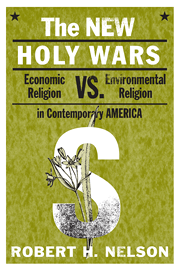Earth Day, the environmentalist holy day, is approaching again, reminding us that environmentalism has become a kind of religion. Which raises a question: Why is it OK to teach environmental religion in public schools, while the teaching of Judaism, Christianity, and other traditional religions is not constitutionally permitted?
As Joel Garreau, a former Washington Post editor, wrote in 2010, “faith-based environmentalism increasingly sports saints, sins, prophets, predictions, heretics, sacraments and rituals.”
Some argue that a religion must have a God, which would disqualify environmentalism. Yet, as the great American psychologist and philosopher William James observed in The Varieties of Religious Experience, it is not necessary to “positively assume a God” to have a religion. James insisted that “godless or quasi-godless creeds” also can qualify as religions, which—given its devout belief system and the fervor of its adherents—clearly would include today’s environmentalism.
Similarly, Paul Tillich, the great American theologian, defined religion as a comprehensive belief system that seeks to answer questions of “ultimate concern” to human existence. For Tillich, it was characteristic of our time that “the most important religious movements are developing outside of [official] religion.”
The Supreme Court endorsed such an understanding of religion in the 1965 case United States v. Seeger. The court ruled that conscientious-objector exemptions from the draft should be applied equally to those who believe in a supreme being and those “with a sincere and meaningful belief which occupies in the life of its possessor a place parallel to that filled by the God” of religious believers.
Even as it adopts secular forms, environmentalism borrows to a surprising degree from Jewish and Christian history. For example, Deuteronomy warns those who worship false idols that God “will send disease among you...fever, infections, plague, and war...[and] will blight your crops.” In 2010, Al Gore similarly saw environmental sinners as headed for calamity on a biblical scale: rising seas, “stronger and more destructive” hurricanes, and “longer and deeper” droughts.
Contemporary environmentalism’s greatest religious debt is owed to Calvinism. It was John Calvin who wrote that God had “revealed himself and daily discloses himself in the whole workmanship of the universe.” For both Calvin and environmentalism, the natural world is the work of God, the creation.
Man’s role is to conserve God’s work. Thus, the rituals of environmentalism celebrate reduced consumption—lowering the heat, driving less, conserving water, living in smaller houses, having fewer children. Limiting human appetites, rather than satisfying ever-growing demands, is the environmental commandment.
As prominent an environmentalist as David Brower, who served as executive director of the Sierra Club for 18 years, has described human existence as a terrible “cancer” destroying God’s good creation. Being environmentally “born again” was for Brower and many other environmentalists the only good answer to modern man’s environmental corruption and sinfulness.
The issue posed by environmentalism today, for those who believe in the separation of church and state, is: Does it make sense to constitutionally prohibit the teaching and embrace of Judaism, Protestantism, and the like in official public settings, while permitting the government establishment—as taught in the public schools—of this new secularized faith: the religion of green, the religion of Earth Day.
Robert H. Nelson is a professor of environmental policy at the University of Maryland and a senior fellow with the Independent Institute. He is the author of “The New Holy Wars: Economic Religion Versus Environmental Religion in Contemporary America.”












